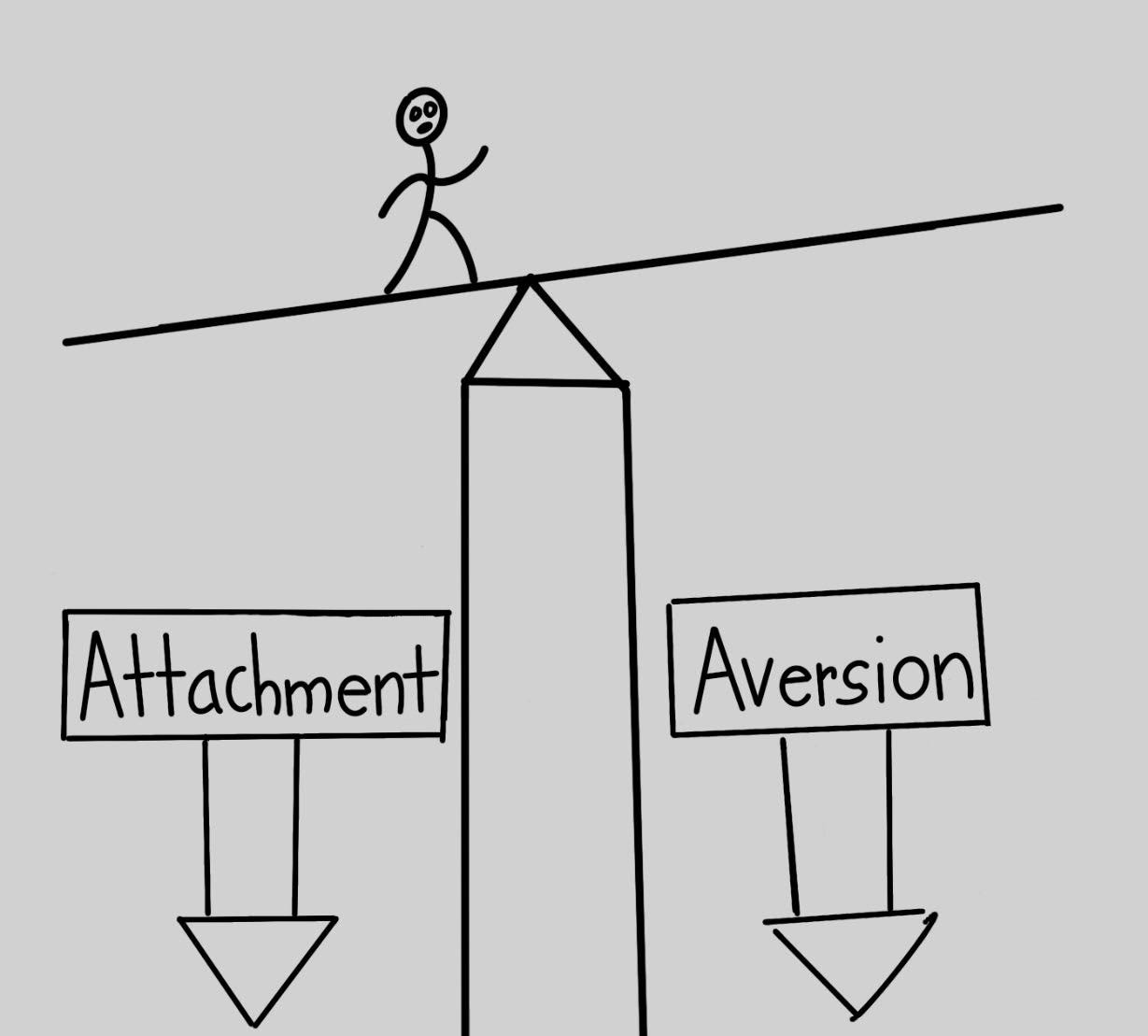Attachment
As we mature and develop a sense of certainty about the world around us, we get better at recognizing the experiences we’d prefer to have and those we’d prefer to avoid.
Our personal histories produce a lens through which we attempt to peer into the future and map out a path forward.
At the very least, we have a general idea of what we want and what we need to do to obtain it, so peace and stability should naturally follow.
Right?
This sort of false confidence in our prophetic abilities inspires feelings of attachment that grow stronger as we become increasingly entranced by our daydreams.
Attachment imbues our expectations with a weight that, when carried unskillfully, almost inevitably comes crashing down. For that reason, we ought to train our minds to hold that weight with wisdom.
Our identity and well-being need not be contingent on having some desired future realized. And our personal experiences repeatedly betray this reality.
Think of your last success. The last time you had accomplished something that made you feel proud. Did you feel like your job was done? Or did you simply extract some momentary pleasure from the triumph and then begin heading toward the next goal?
Even when our expectations are met, the finish line just moves somewhere else.
Furthermore, when the things we do cling to don’t pan out in the way we had hoped, we feel let down and disappointed either in ourselves or in something in the world around us, or both. All because we become overly attached to the idea that well-being is a thing to be obtained through striving.
For those reasons, it’s important we teach ourselves to be mindful of our tendency to attach our mental health to the completion of some task or goal.
Aversion
When we begin detaching ourselves from our unhealthy expectations, we need to be wary of crossing the line from attachment to aversion.
While the above framing suggests that aversion is the opposite of attachment, at its core, it’s simply another form of it.
We might recognize an unhealthy attachment to something like wealth, pleasure, fame, or some common negative thought patterns like self-doubt, anxiety, or paranoia and begin developing the habit of raising red flags when they are noticed.
Upon noticing any unwanted thoughts, be aware if your mind rushes to remind you that you’re treading down the wrong path. Overpatroling your own mind is also another form of clinging.
In that situation, you’re clinging to non-pessimism, non-self-doubt, non-paranoia, or whatever else.
All we accomplish is changing the direction in which we orbit around the same old focal point.
Ultimately, we’re still stuck in a position where those unskillful habits determine our course.
It is the thought that we should be over there and should be feeling this or should not be feeling that that fundamentally plagues us.
In those moments, it is important to remember,
Thoughts are not our enemy.
Emotions are not our enemy.
Any and all experiences we may have, whether bad or good, are nothing more than experiences and, therefore, temporary states of consciousness that will fade.
The attitude we want to cultivate is one of acceptance and self-love, not judgment and self-hate.
But what exactly does that state between attachment and aversion truly look like in the face of unskillful thoughts and emotions?
What are the characteristics of a compassionate and accepting mind that is caught in the middle of a storm?
Fortunately, you’ll find that you experience that freedom far more often than you’d expect.
Practice: Open Awareness
Typically, we take our thoughts and emotions to be irrefutable self-declarations.
To help dispel this illusion, it helps to be mindful of the true origin and lifespan of those mental activities.
As you’re going about your day, try paying close attention to the beginning and end of any thoughts or emotions you can notice.
Specifically, try to notice when you hop on and hop off a train of thought. Don’t get upset at yourself, just be aware of the ebb and flow of mental activity.
One way this is experienced every day is when we have the urge to use the restroom. It’s almost humorous how we can be deeply caught up in some thought pattern, yet when the urge to pee hits us, it can completely occupy our mind.
That’s just one, easy to notice, example of how emotions that seem permanent and moment-defining, can very easily fade away.
The reality is that this is what's happening all the time, whether you notice it or not.
Your mind hops on and off trains of thought as it pleases, and it takes your emotions along for the ride.
Noticing this tendency allows us to remain at the station where we can simply watch the trains as they go by.





Great stuff! I agree there can be a healthy level of attachement. I think a different way of looking at accomplishments rather than as a fickle never-pleasing appetite for more is to look at it as a source of gratitude and hope. There is so much joy to be found in the possibilities of life. I find gratitude in my accomplishments, a sense of belonging, and identity through my accomplishments. If I fail, I can internalize those failures or use those failures as a means for transformation into something I wouldn’t have achieved without the effort that comes from strength. Greatness or the joy of surpassing our initial impressions of our capabilities only come when we have failed and must decide what to do next-subsume or rise. I think what we see now is an unhealthy attachment to the possibilities of life. But like you said we can’t become too attached to the idea of freeing ourselves from these attachments or we lose out on the wondrous joys of living.